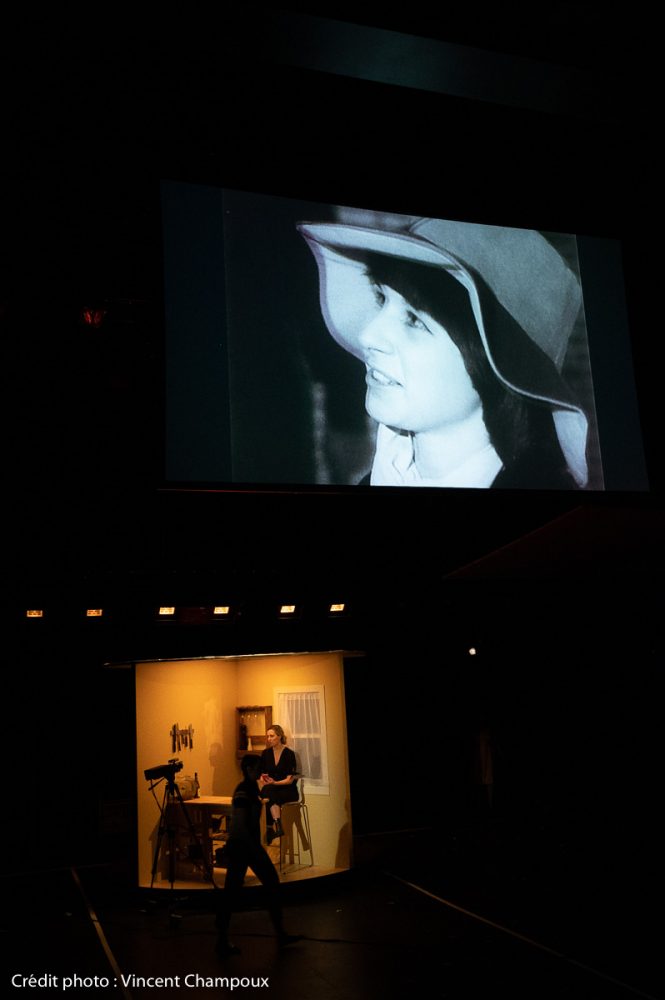From June 14 to 29 is presented at the Théâtre La Bordée Singular, play written by Maxime Beauregard-Martin and directed by Alexandre Fecteau. The author dissects female celibacy in the form of documentary theater from testimonies collected from single Quebecers aged thirty and over. In particular, he denounces the many stereotypes and clichés that surround the world of these “old maids” by giving a voice to the main people concerned. If the premise is clear, the text struggles to resolve its problematic and the result is a wordy and disjointed piece.
By William Pépin, head of the arts section
Theatre: La Bordée | Production: The We Are Here collective and the Catapult Theater | Text: Maxime Beauregard-Martin | Director: Alexandre Fecteau | Assistant director: Stéphanie Hayes | Cast: Frédérique Bradet, Savina Figueras, Eva Saïda, Danielle LeSaux-Farmer, Sophie Thibeault
The paradox of form
Before going into details, it is worth mentioning the colossal work of Alexandre Fecteau in terms of staging. Consistent with the spirit of the documentary, the entire play is filmed and broadcast live on a giant screen. In this sense, the entire scenic space has been designed to revolve around the idea of borrowing from cinematographic grammar. However, a paradox persists: towards the end of the play, I realized that I had not once watched the scene, my eyes riveted on the large screen overhanging the boards. On the one hand, it’s a good sign: the technical know-how and inventiveness captivate, fascinate, all the ideas transmitted to the screen are full of great intelligence. On the other, it’s a problem, because the scenic space is ultimately ignored in favor of a more filmic than theatrical approach. Here the scene becomes a making of unfolding in real time, but nothing more.
The limits of show don’t tell
Maxime Beauregard-Martin’s text is so dense that it is impossible not to feel his desire to deal with several themes at the same time. He talks about feminism, prejudice, sexual assault, friendship, love, loneliness, the female body, immigration, spirituality, religion and so on. The problem, in my opinion, is that these themes are covered one after the other without us being able to bring out a dominant one. The whole thing is far too verbose: for 1h45, we are bombarded with information and exhibition dialogues, as if the spectators were not able to read between the lines or to decode the subtleties that such a subject is likely to touch upon. Yes, the text is based on real testimonials, but their stage use leaves me perplexed: by dint of wanting to say everything, don’t we end up diluting its message?
Shades
In my opinion, what saves the play are its actresses whose games are as varied as they are nuanced. They restore wonderfully (and not without humour) these testimonies which, of course, could have been better exploited, but which all the same come to life on stage (or rather on screen) thanks to their talent, and this, to the greatest pleasure of the spectators.
© Photo credits: Vincent Champoux

